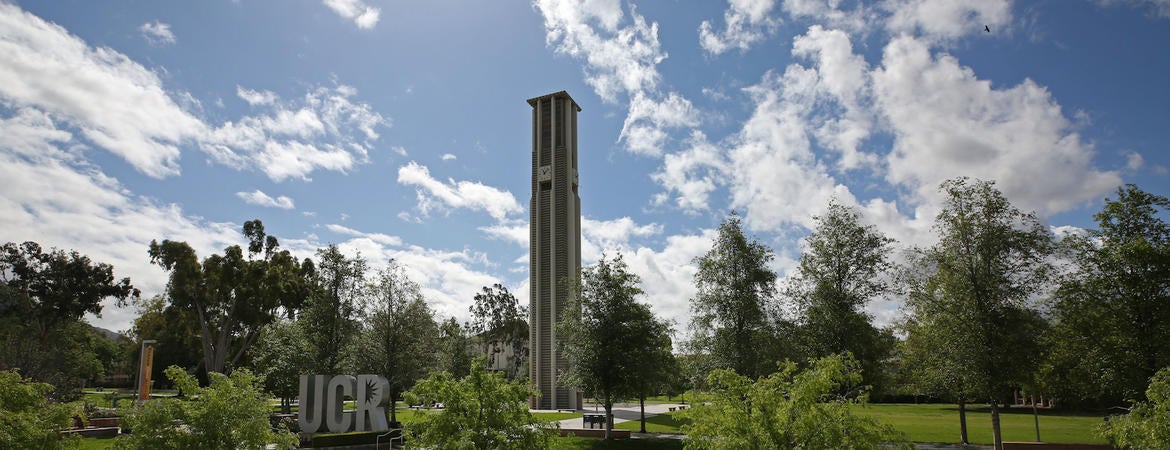
In the wake of a national election that signaled heightened interest in politics as well as deep fissures that threaten our democracy, a new study by researchers at UC Riverside and UCLA raises concerns about the democratic mission of schools and a lack of support for civic learning across California.
The study, "Reclaiming the Democratic Purpose of California’s Public Schools," asserts that civic and democratic goals are marginal to the mission statements of school districts and that civics and democracy are not part of Local Control and Accountability Plans, or LCAPs, for most California school districts. There is also little staffing and infrastructure that supports civic learning, the study found. The researchers call on education, community and policy leaders to make democratic education and civic learning a renewed priority for public education in the state.
“It is time to reclaim the democratic purposes of public education in California,” said Joe Kahne, a professor of education policy and politics at UC Riverside. "The good news is that research shows that providing learning opportunities for discussion, analysis, and informed civic action deepen both understanding and civic commitments."
The study is a project of Leveraging Equity and Access in Democratic Education, or LEADE, a joint initiative of UCLA and UC Riverside researchers working to ensure students have access to high quality civic learning opportunities. Key findings of the research include:
- Civic and democratic goals are marginal to the mission of school districts
- 41% of districts were silent on the social purpose of education. They did not mention anything about preparing young people to participate in their community or society.
- 44% of the districts marginally addressed civics; they spoke of developing young people for social roles, but did not talk about civic or political development.
- Only 15% of districts substantially addressed civics in their mission or vision statements.
Civic and democratic commitments are absent from districts’ accountability plans
- 87% of all districts in the state did not mention any of the following terms in their 2017-18 LCAP: civic(s), citizen(s), citizenship, or democracy.
- A district's LCAP lays out priorities as well as plans for discretionary funding, thus the avoidance of the terms civics, citizen, citizenship, and democracy by seven of eight districts in the state signals disinterest in the democratic purposes of schooling.
There is little staffing and infrastructure that supports a civic agenda.
- Of the 31 districts in the sample that posted information on their websites regarding instructional staff, fewer than one-third (29%) had only a single staff member dedicated to history and social sciences and no districts employed more than one person in this area. In contrast, 71% had at least one dedicated staff person in English Language Arts, 55% had at least one in math, and 58% had at least one in science.
“Our analysis suggests that more than five million of California’s six million students attend schools in districts that do not articulate a substantial focus on civic education,” said Erica Hodgin, co- director of the Civic Education Research Group at UC Riverside. “It is also clear that few districts have staff tasked with supporting civics, history, and social science compared with staff supporting other academic areas.”
While concerned over the lack of attention to and support for civic learning among schools, the researchers are hopeful about the future of civic education in California. The report highlights a range of assets that can expand and deepen civic education in the state, including youth, families and community members, community-based youth organizations, leading school districts, intermediaries, and state coalitions. The researchers are also encouraged by the recent creation of a State Seal of Civic Engagement for California for students, establishing a goal for students to develop and demonstrate an understanding of and participation in civic life. They hope the State Seal will galvanize attention and support for civic education and that school districts and others will embrace the seal as a goal for all California students and commit to supporting high-quality civic learning across the state.
“As John Dewey put it, ‘Democracy has to be born anew every generation, and education is its midwife,’” said UCLA education professor John Rogers. “Throughout American history, public schools have been charged with preparing youth for participation in our democracy. But as recent events and our research make all too clear, when it comes to fulfilling the democratic purposes of schooling, we are falling far short.”
The reports’ authors urge California to develop an initiative to support the democratic aims of education. The report offers specific recommendations for public action at the state and local levels including designating democratic education as a priority area for schooling that districts address in their Local Control Accountability Plans and convening a state task force to develop a master plan for civic learning in California.
The report, Reclaiming the Democratic Purpose of California’s Public Schools, is a project of the Leveraging Equity and Access in Democratic Education (LEADE) initiative. The full report and recommendations are available at https://centerx.gseis.ucla.edu/leade/



